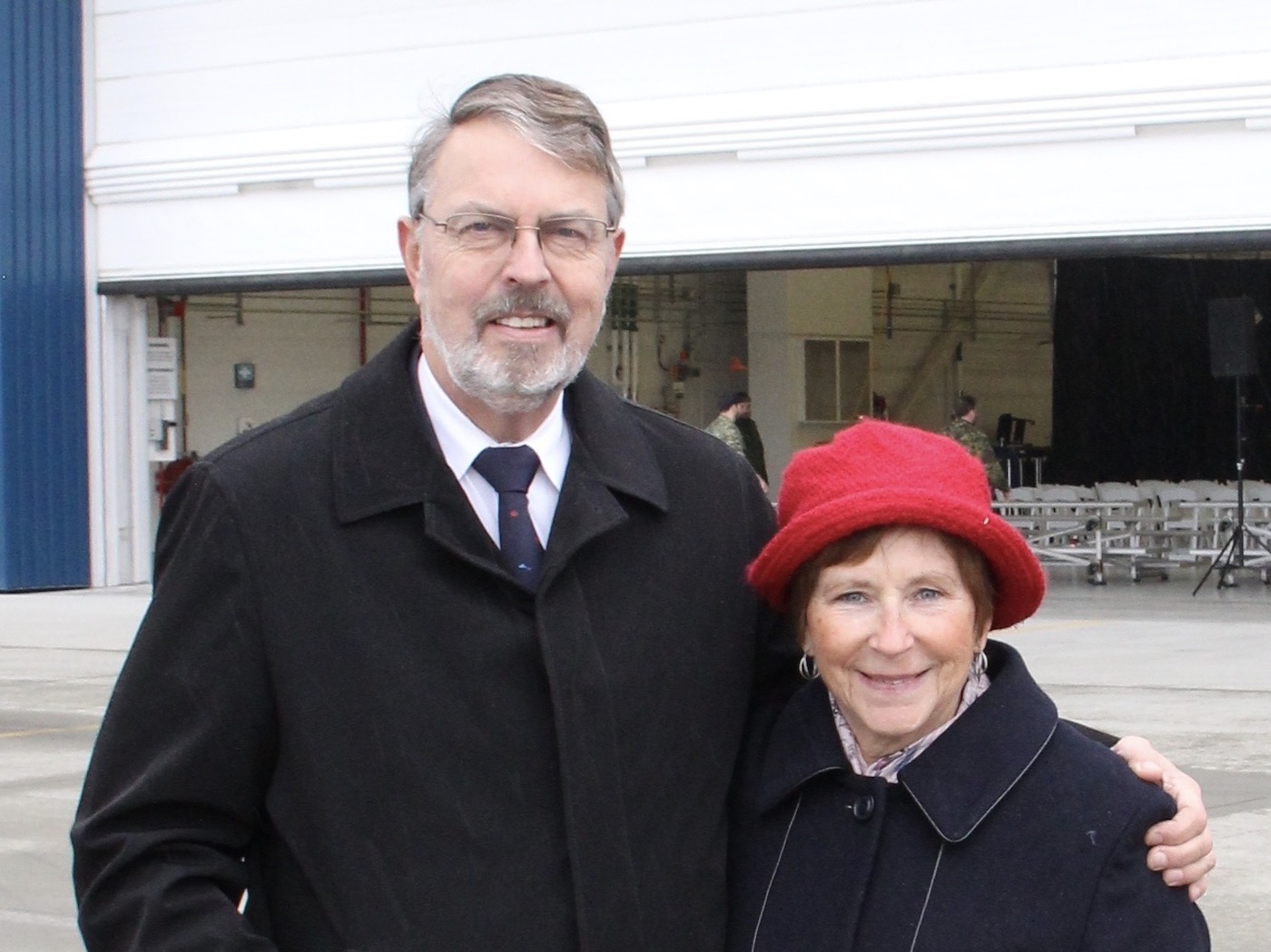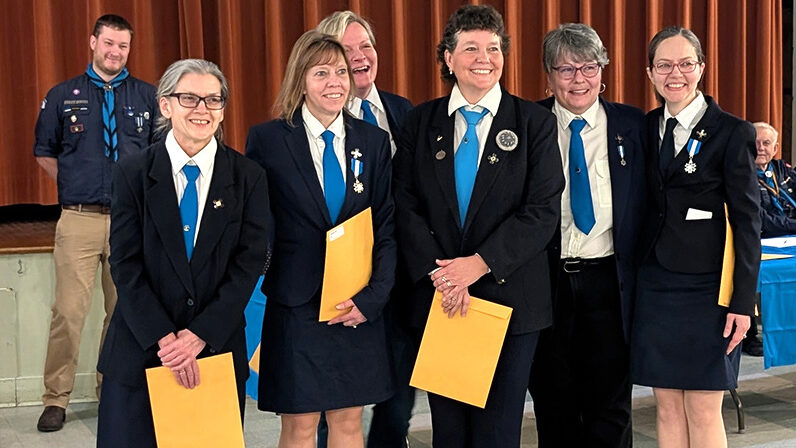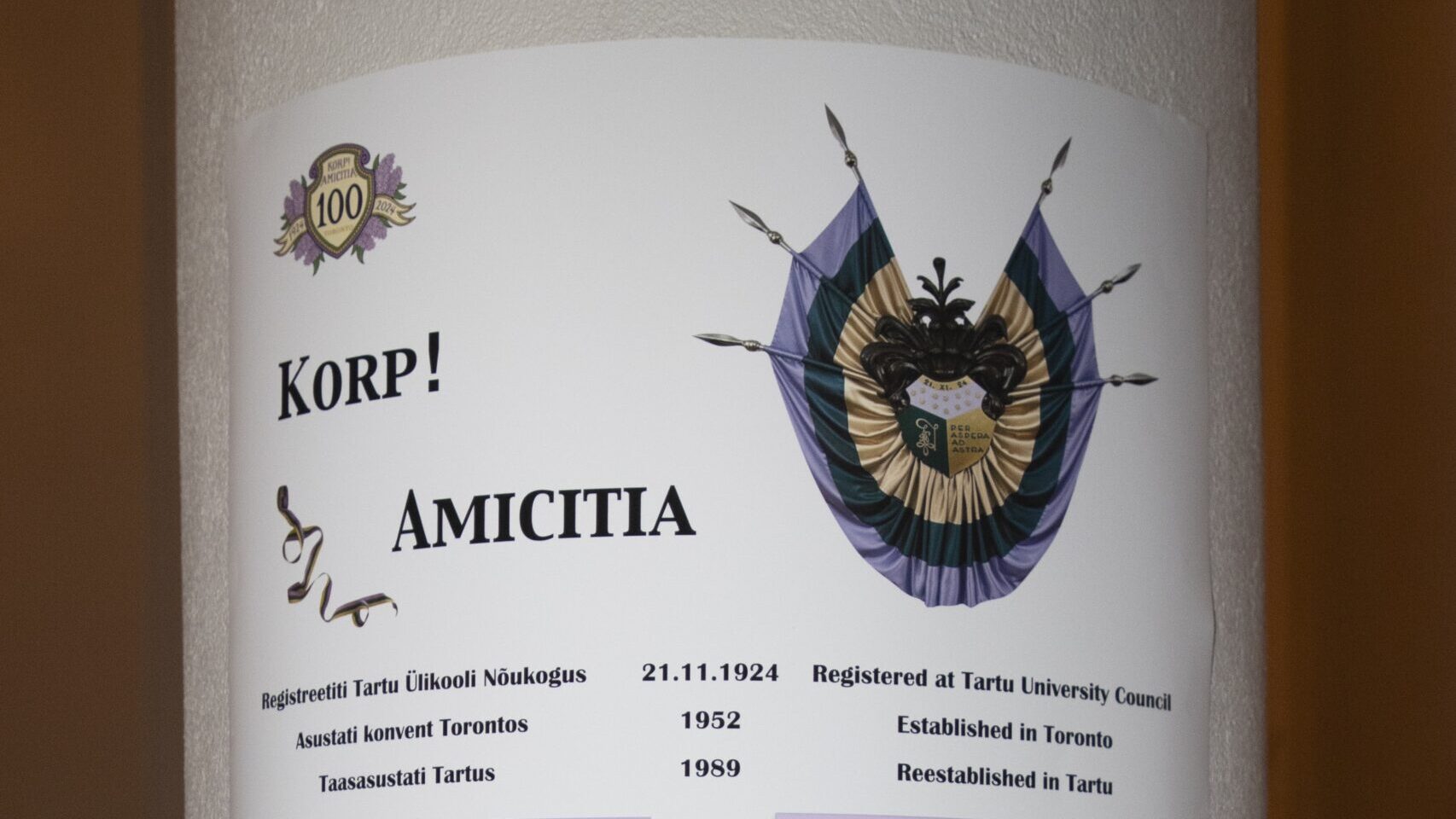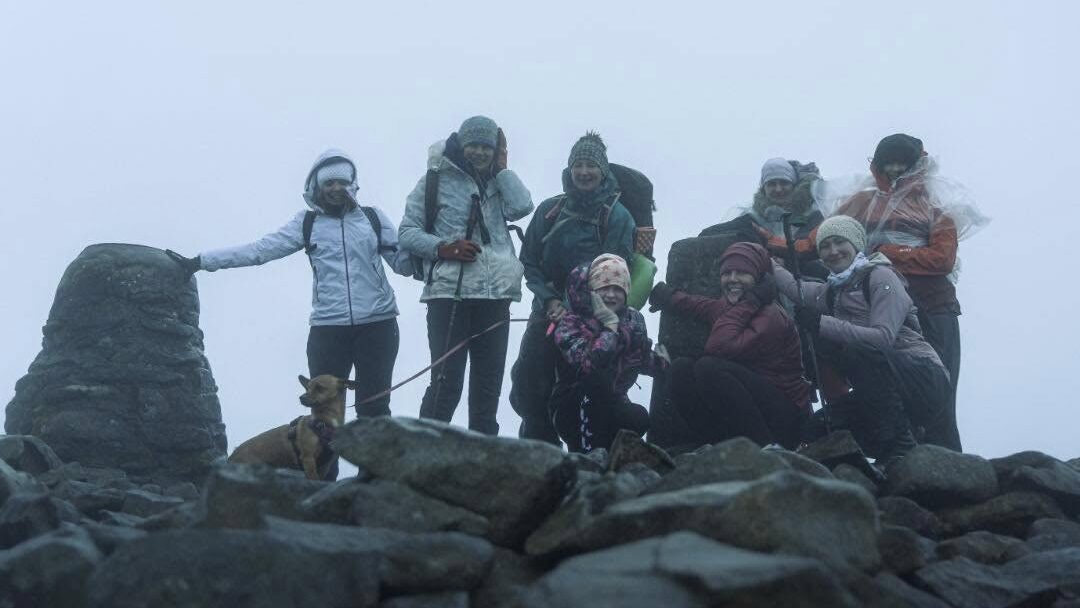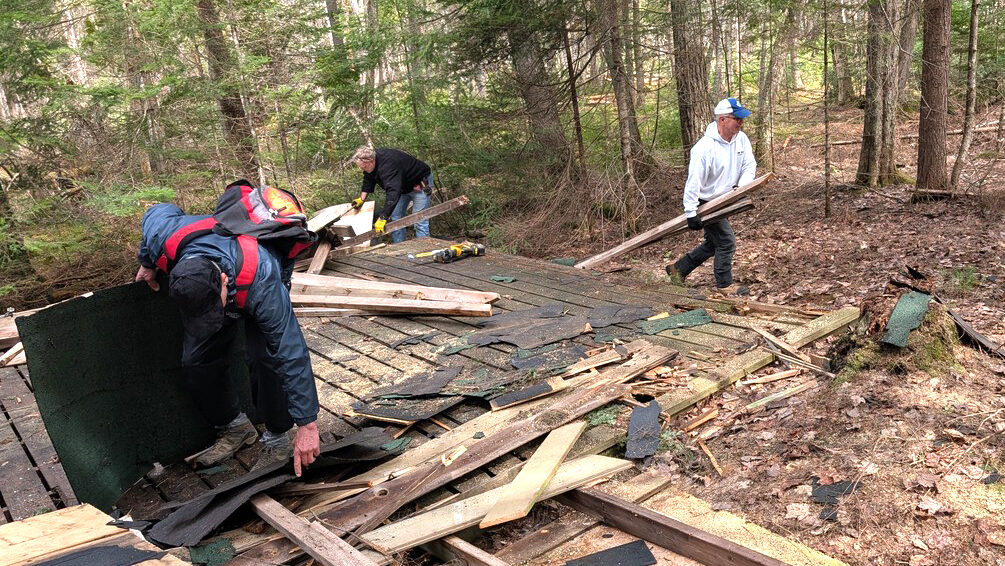He has strong confidence in the project’s leadership.
“What compelled me to give is knowing some of the people – and reading about the others – who are working on it,” he said. “My instinct was to help, and this is how I can put my oar in the water. I have a lot of respect for the people who are working their way through this great ambition.”
“The project leadership has done great work and have listened and responded to what the community needs. They have my full confidence. It’s not only the right decision, but a very good decision.”
Margus has a unique perspective on “eestlus” – what it means to be Estonian. He spent much of the Cold War period chasing Soviet submarines in his role as a naval aviator with the Canadian Armed Forces (CAF) specializing in the acoustic technology used by aircraft to pinpoint the locations of the submarines.
“Our goal was to track nuclear missile-firing submarines,” he explained. “It was fascinating work that used very advanced technology.”
Then, in 1994, came the opportunity of a lifetime. Margus, who rose to the rank of Colonel during his career with the CAF, was sent to Estonia by Canadian Chief of Defence General John de Chastelain to help forge a path to help the country set up its Air Force and join the North Atlantic Treaty Organization (NATO). He acted as advisor to General Aleksander Einseln, and was the first Chief of Staff of Estonia’s fledgling air force.
“They were incredibly heady days, and a fascinating time in Estonia’s history” he recalls. “There was never a question of if we could do this, only how. We hammered out things in a week that would take a year anywhere else!”
One of the most meaningful aspects of the time he spent in Estonia was the chance to spend time with extended family members, who he had never had the chance to meet as the Second World War tore many families apart.
“I really got to understand the history and culture, and it’s been a wonderful opening of our world.” Family members from both his mother’s and father’s sides have come to visit Margus and his family, who made their home in Ottawa.
Margus’ son Peter, who was 10 years old at the time, joined his father in Estonia and went to school there for a year – a wonderful developmental experience. Peter, now 37, is a human resources executive for an engineering firm.
Margus and his wife Susan Chapman, a former high school teacher, also have two daughters: Erika, 33, is an economist with an engineering company and Kristi, 35, works in the medical IT field. All their children live in Ottawa.
“Susan and my family are very supportive of everything we are doing for the Estonian community.”
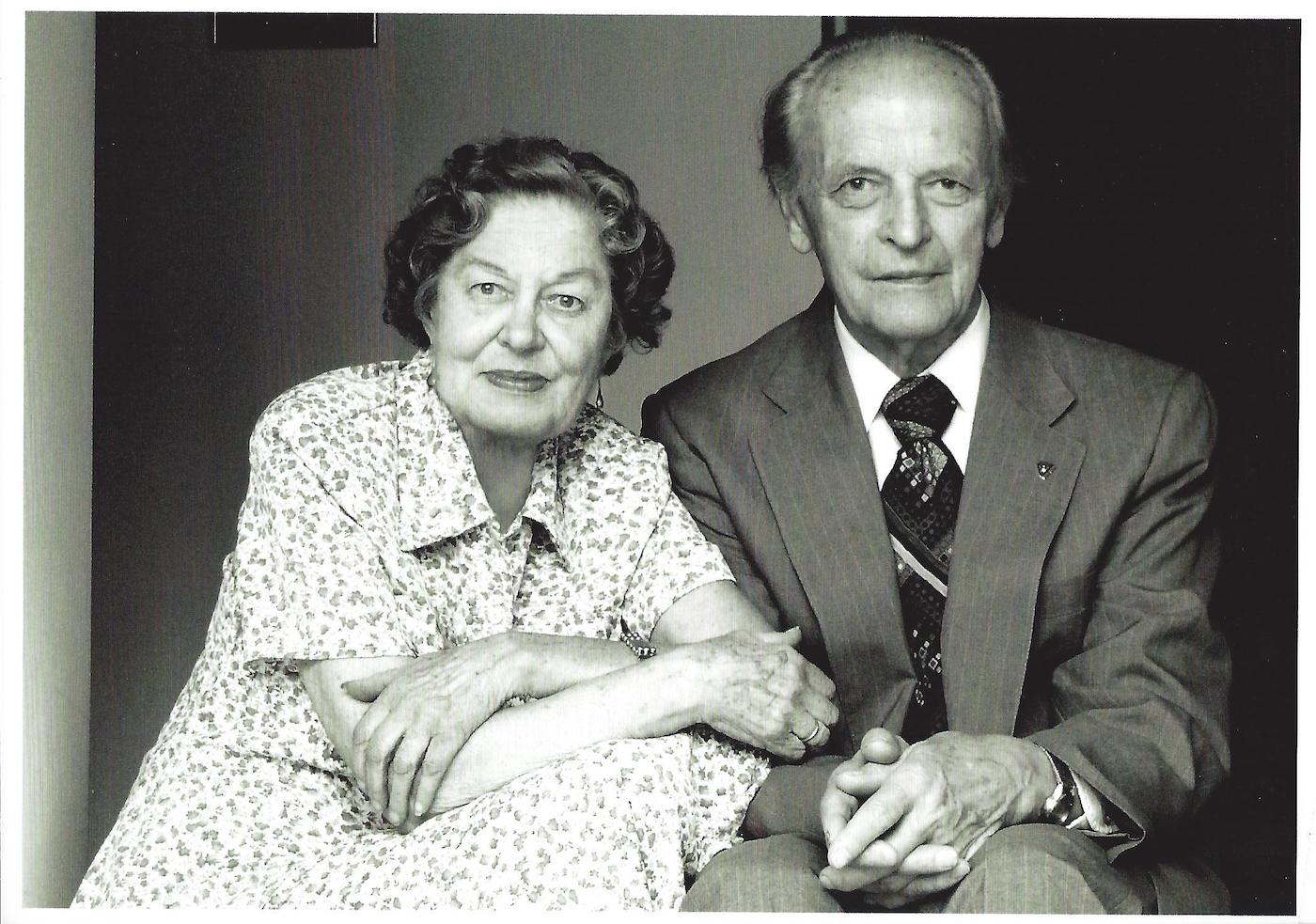
Margus grew up in Toronto and has lived in Ottawa for over 20 years. His parents Endel and Henny Aruja were community leaders who made their mark on Toronto’s vibrant Estonian community.
Dr. Endel Aruja, a mainstay at Tartu College for decades and where he worked until the age of 95, was a physicist specializing in X-ray crystallography. He received his PhD from the University of Cambridge in 1943 and taught physics at Ryerson University in Toronto.
Endel participated in founding and running a number of Estonian organizations in England: the London Estonian Society, which he chaired for six years, the Estonian Association of England and the London Estonian House. Endel and Henny met and married in England. Margus and his sister Epp, who lives in Toronto, were born in England. The family emigrated to Canada in 1962.
The community-building work continued full steam in their newly adopted country. Endel was the first secretary of Tartu Institute in Toronto from its founding in 1972 until 2004. Henny was active in Estonian guides and took on the task of “juhataja” (director) of the summer camp Jõekääru for many years.
Endel was also a passionate supporter of historical knowledge and organized shipments of Estonian books to libraries in Estonia, materials that were not allowed during the Soviet occupation. All told, he spearheaded the delivery of over 7,000 boxes of books to Estonian libraries.
His archival contribution is just as legendary. Endel collected eight roomfuls, totalling about 236 square metres, worth of archival material at the Tartu Institute Archives and Library. It has resulted in one of the most extensive cultural compendiums on the Estonian diaspora, and today is the backbone of the Estonian Studies Centre VEMU archives.
After Margus retired from the military, he spent a dozen years working in the aerospace industry in business development and program management. Now, he has again set his sights skyward. He has turned his attention to the sophisticated technology of drones through Unmanned Systems Canada, a national association he chaired for several years. He continues to work with regulators in this rapidly developing field.
He reiterates the need for a global Estonian community hub.
“We are indigenous people, native to the land, and knowing where we come from is very important,” he said. “If you don’t know where your roots are, there may be some discomfort in your life. For those of us who were displaced, we need a place to connect.”
“Estonia is a nation of just 1.3 million people. The only thing that can keep us together is that connection.”
It’s obvious that for Margus, the sky is really the limit.
And he has witnessed first-hand how once Estonians put their minds and energy to something that really matters, it happens.
Get involved and help support our future
Are you interested in helping build this spectacular new home for the global Estonian community? Please join our growing list of capital campaign donors! The International Estonian Centre’s donor categories are Kalevipoja Laud for gifts over $100,000 (including naming rights for specific areas), Viru Vanemad for gifts over $10,000, and Kungla Rahvas for gifts up to $10,000. Stay tuned for the launch of the Kungla Rahvas campaign in 2021.
To make a donation, please contact Urve Tamberg at donations@estoniancentre.ca.
Donations may be made as a family gift, or in honour of an individual or family. All Canadian and U.S. donations will be issued a tax receipt.
Let's stay connected…
- Facebook: Estonian Centre (@EestiKeskus)
- Instagram @keskus.iec
- Twitter @keskus
- Eesti Elu: Look for our articles in the Eesti Elu print edition, as well as on www.eestielu.ca. All articles are also available on our website www.estoniancentre.ca.
- Sign-up for the email newsletter on www.estoniancentre.ca (bottom of our home page).


 The sky’s the limit for shaping the future of the Estonian community
The sky’s the limit for shaping the future of the Estonian community